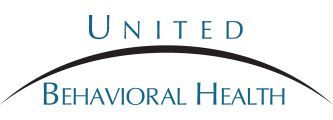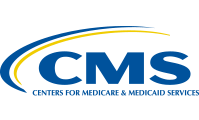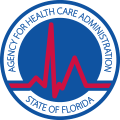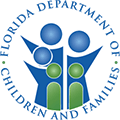North Tampa Behavioral Health is a leading rehab center for individuals struggling with benzo abuse. Located in Wesley Chapel, the expert staff at North Tampa provides lasting recovery through holistic care and comprehensive programming.
Treatment for Benzodiazepine Abuse
Learn more about Benzodiazepine Abuse Treatment
Benzodiazepines, such as Xanax, Klonopin, Valium, and Ativan are widely prescribed prescription drugs that are used to treat a variety of illnesses, most notably anxiety disorders and insomnia. While relatively safe, chronic usage of these drugs can be addicting for many, especially in combination with other drugs of abuse such as opiates or alcohol. When you find that you can’t get through the day without popping a benzo or experience withdrawal symptoms if you stop taking them, you have developed an addiction to benzodiazepines.
Benzodiazepines are considered to be safe drugs, but if you’re dependent upon benzos, you’ll find that stopping the drug isn’t as easy as a desire to quit. The withdrawal symptoms from benzodiazepines can lead to life-threatening consequences, so quitting benzos should only be done under the close supervision of a safe inpatient rehab center. If you’re addicted to benzodiazepines and don’t see any way to break the cycle of abuse, it’s time to call the professionals at North Tampa to overcome your addiction once and for all.
Helping a Loved One
How To Help A Loved One Enter Inpatient Rehab for Benzodiazepine Abuse
You probably feel helpless, sitting on the sidelines as you watch your loved one struggle with addiction to benzodiazepines. You may not know what to say or are afraid you’ll say the wrong thing and make the whole situation worse. Your family life may be greatly impacted by the benzo addiction but you don’t know how to make it any better. It’s time for your loved one to go to an inpatient detox and rehab center for benzodiazepine addiction.
Before approaching your loved one about entering rehab, you need to read up on benzodiazepine addiction and the disease of addiction in order to best understand the process. This will best allow you to advocate for your loved one and make sure he or she is getting the care that’s needed to overcome the addiction.
Have an open and frank discussion with your loved one about what you’re seeing using “I” statements, such as “I notice that you’ve been neglecting your friends. Do you feel lonesome?” rather than using a more forceful tone. Listen openly and honestly to your loved one as he or she discusses the feelings deep inside.
Offer tangible help to guide your loved one into inpatient treatment. Make a doctor’s appointment with your loved one’s general practitioner or psychiatrist and offer to accompany your loved one to the visit. Take notes and ask questions of the physician especially as you begin to discuss treatment options.
Remember that you cannot make the decision to seek treatment for your loved one; this is something that he or she is going to have to do on his or her own. You can guide your loved one to the proper care, but you cannot force them to seek treatment. Instead, offer reassurance and love, reminding them that you’ll be there, no matter what.
Research behavioral health centers to allow you to help your loved one choose the proper inpatient program that best meets his or her needs. Make an appointment and speak to an inpatient counselor in order to learn how the process works at the center and see if you can bring your loved one in for a tour. This can help alleviate many of the fears your loved one may have about seeking inpatient care for benzodiazepine addiction.
Why Choose Us
Why Should You Consider Inpatient Treatment at North Tampa?
When you’re addicted to benzos, you may find that you’re living in a dream-like state, unable to focus upon anything beyond getting your next fix. You may resort to stealing prescriptions from others or visiting multiple doctors to obtain prescriptions for the drugs. When you’re high, you may make poor decisions and engage in risky behaviors because you’re simply too intoxicated to make the right decisions. It may feel as though you’re living outside of your body. When reality hits, you may find yourself struggling to accept the decisions you made while high on benzos or accepting the consequences of your risky behaviors. This can make you feel scared, isolated, and alone in your addiction.
Research has shown that the most effective means of treating addiction is through an inpatient program that offers detox, medication monitoring, and various therapeutic approaches that are designed to meet your needs. While you may be frightened of the idea of giving up your addiction to benzos, the consequences of remaining an addict will begin to outweigh any possible good feelings from the drugs. Many people have struggled and beaten their addiction to benzodiazepines through completion of an inpatient rehab and aftercare program that focuses upon treating the whole you – mind, body, and spirit.
Rehab Philosophy
Rehab Philosophy and Benefits
At North Tampa Behavioral Health, we use an eclectic form of treatment for those who come to us for benzodiazepine addiction. We know that addiction treatment is never a one-size-fits-all approach and we’re ready to try different methods of treatment to make sure we find one that works best for you. Our holistic care center will be the means by which you engage in your voyage of self-discovery and your treatment team, comprised of nurses, physicians, psychiatrists, social workers, therapists, and support staff will be there to guide you on your journey. We’ll spend a great deal of time getting to know you, the real you, and work to fulfill all of your needs – mind, body, and soul.
Types of Therapy for Benzodiazepine Abuse
Types of Therapy We Use to Treat Benzodiazepine Abuse
When you first come to us for help overcoming your addiction to benzodiazepines, you’ll first undergo a series of evaluations to help us gain a better picture into the ways we can help you beat your addiction. Our medical examination will determine how dependent your body has become upon benzodiazepines and any other drugs you may be taking, as well as diagnose any medical consequences of your drug usage. Our psychiatric evaluations will present a picture of your overall emotional well-being and determine if you are struggling with any co-occurring disorders. You will then meet with your treatment team to discuss the next steps in your treatment process.
If you come to us physically addicted to benzodiazepines, you will likely enter into our detox program first. During detox, we’ll safely and effectively rid your body of benzodiazepines and other substances while providing maximum comfort. Medication may be used during detox to manage the symptoms of withdrawal and discontinued as you learn better coping techniques. Other people may use medication on a longer-term basis to help manage any co-occurring disorders.
Cognitive behavioral therapy (CBT) is used to help us determine negative thought patterns you may have and correct them with more positive ways of viewing the world. This can, in turn, help to change behaviors.
Group therapy is a very important part of our addiction recovery program as we find that bonding with those who are struggling with similar addictions can help you both grow, learn, and heal. We offer process groups that focus on a particular topic and allow you to work through the emotions you have about that topic in a safe environment. Our psycho-educational groups are designed to allow you the chance to learn more about certain topics related to addiction such as relapse prevention, coping skills, and managing triggers.
Family and loved ones are vital to recovery from addiction as they can provide the support you so desperately need as you learn to heal. We offer family sessions to allow your loved ones to learn more about addiction and recovery as well as provide them the opportunity to share the ways in which your addiction has impacted their lives. We’ll also work to mend any bonds broken by addiction and focus upon family unity.
Continuing Care
Continuing Care – What Comes Next?
As the time for discharge from our inpatient program draws near, you’ll sit down with your treatment team to determine appropriate aftercare options. Some people feel comfortable in a highly structured setting and opt to join a residential program. Others may slowly integrate back into their lives by joining our Partial Hospitalization Program (PHP) or Intensive Outpatient Program (IOP), both of which offer similar programs. If you feel you’ve made enough progress on your voyage of self-discovery and are ready to discharge to home, we’ll refer you to available community resources such as N.A. as well as traditional outpatient therapy providers.











